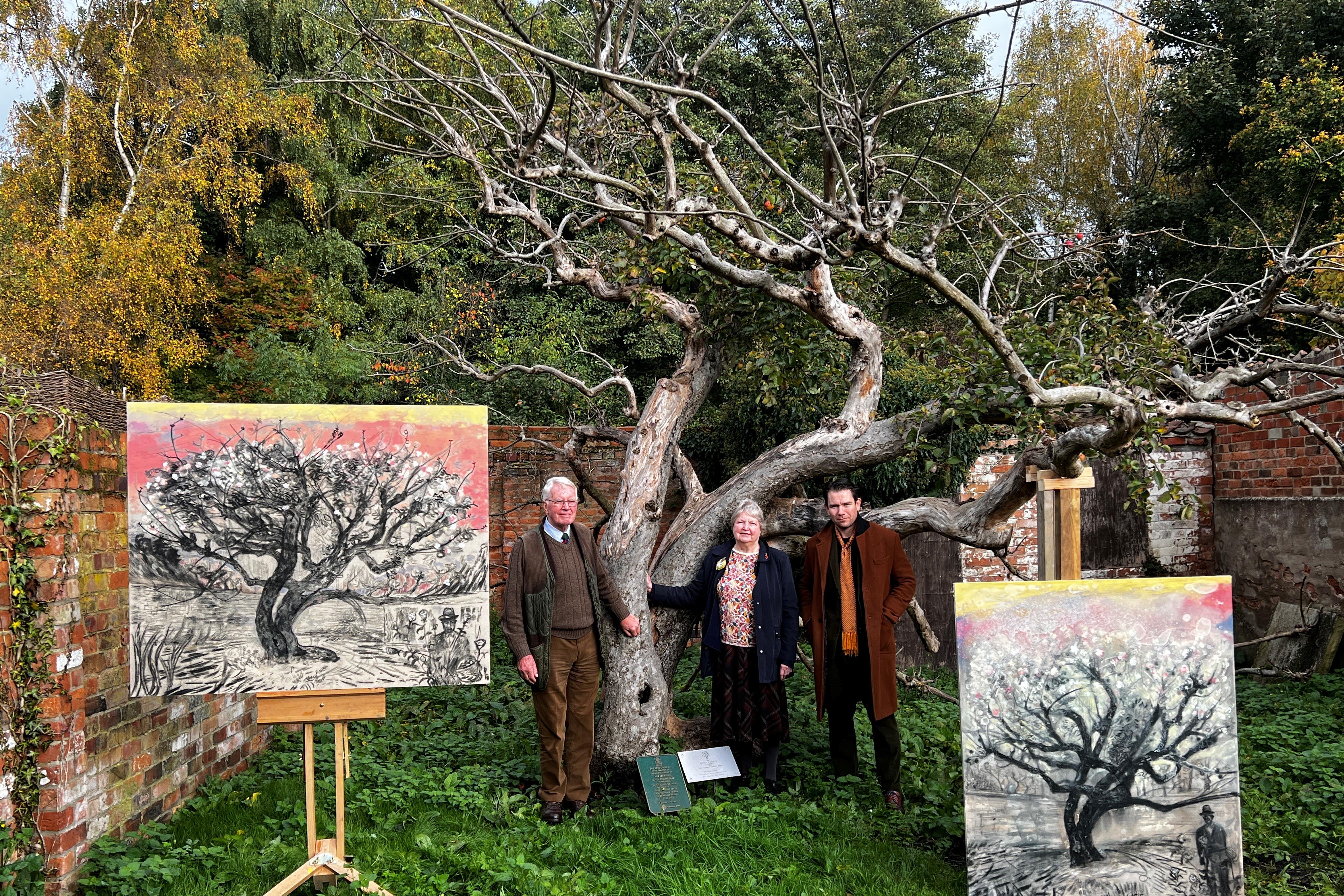Campaign launched to support original Bramley apple tree
The Bramley Apple Festival takes place in Southwell on October 26.

Your support helps us to tell the story
From reproductive rights to climate change to Big Tech, The Independent is on the ground when the story is developing. Whether it's investigating the financials of Elon Musk's pro-Trump PAC or producing our latest documentary, 'The A Word', which shines a light on the American women fighting for reproductive rights, we know how important it is to parse out the facts from the messaging.
At such a critical moment in US history, we need reporters on the ground. Your donation allows us to keep sending journalists to speak to both sides of the story.
The Independent is trusted by Americans across the entire political spectrum. And unlike many other quality news outlets, we choose not to lock Americans out of our reporting and analysis with paywalls. We believe quality journalism should be available to everyone, paid for by those who can afford it.
Your support makes all the difference.A campaign has been launched to raise funds for the original Bramley apple tree, which was planted more than 200 years ago.
The tree was sown by Mary Ann Brailsford in the garden of her parents’ home in Church Street, Southwell, Nottinghamshire, between 1809 and 1815.
Almost 50 years later, a 17-year-old boy named Henry Merryweather came across a gardener carrying some of the apples and asked where they had been grown.
By this time, the garden containing the apple tree belonged to a butcher called Matthew Bramley, who gave Mr Merryweather permission to take cuttings of the ‘Bramley Seedling’.
Since then, the Bramley apple has become one of Britain’s most popular cooking apples – with more than 300 Bramley growers in England and about 83,000 tonnes grown annually in the UK.
The original Bramley tree was cited as one of the 50 Great British Trees in the Queen’s Golden Jubilee in 2002, and it was one of 70 ancient trees to be dedicated to the Queen for the Platinum Jubilee in 2022.
However, it has been affected by honey fungus which Nottingham Trent University – the current owner of the tree – says will eventually lead it to perish.
Dan Llywelyn Hall, who was the youngest artist to paint a portrait of the late Queen, has now unveiled new works of the tree entitled Swansong Of The Mother Bramley.
His pieces are part of a campaign, supported by the family of Henry Merryweather, to raise funds to support the tree.
Mr Llywelyn Hall, from Wales, said: “My painting is a last hurrah of the Bramley as it surges skyward in a four season blossom and a bounty of apples.”
Donations raised by the campaign will go towards a tree survey and ground work to remove vegetation and the honey fungus, and improve support structures to prevent any collapse, he said.
An information point for visitors, outlining the history of the tree, will be installed, campaigners say. Donations will also go towards an ongoing landscaping programme and garden improvement.
Delia Smith said: “I could not live in a country that could not supply me with Bramley apples. I have recipes for Bramley apples where nothing else will do.
“The tart flavour is unique, so is the fluffiness. I love them just as they are cored, brushed with butter and very slowly baked in the oven with just a slit around the waist.
“For the best concentrated apple flavour, no other recipe can match this one.”
Celia Stevens, the granddaughter of Henry Merryweather, called for improved public access and awareness of the tree which is currently situated in a private garden.
She said she had previously asked for a clone of the tree to be planted near the original but this had not yet happened.
Mrs Stevens said: “It is so disappointing that with its two prestigious awards that the surrounding garden in no way reflects what the Bramley has done for this country both locally and nationally, and that includes food during the Second World War.”
Nottingham Trent University said issues about the care of the tree had not previously been raised and it had not been consulted about the fundraising campaign.
A spokesperson told the PA news agency: “We are incredibly proud to be custodian of the original Bramley apple tree and recognise its significance to the local and wider community.”
The tree had been affected by honey fungus before the university became its custodian, having purchased two cottages for student accommodation, and has “already outlived its natural lifespan by quite some time”.
“Despite this, the tree still bears fruit and the university continues to work hard to look after it to try to prolong its life and maintain it in the most appropriate way for a tree of this age and condition,” the spokesperson said.
Genetic material has been taken from the tree for analysis to establish what gives the Bramley its “unique characteristics”, they added.
The university said the garden was opened for members of the public upon request and for events such as the Bramley Apple Festival which is taking place on October 26 this year.
Visitors from across the world – particularly Japan where there is a fondness for Bramley apples – will attend the festival.
Mr Llywelyn Hall’s piece can be viewed in the Southwell Minister and will be auctioned to create the fund for the tree.
Donations to the campaign can be made via https://www.crowdfunder.co.uk/p/bramley-apple-rescue-fund.